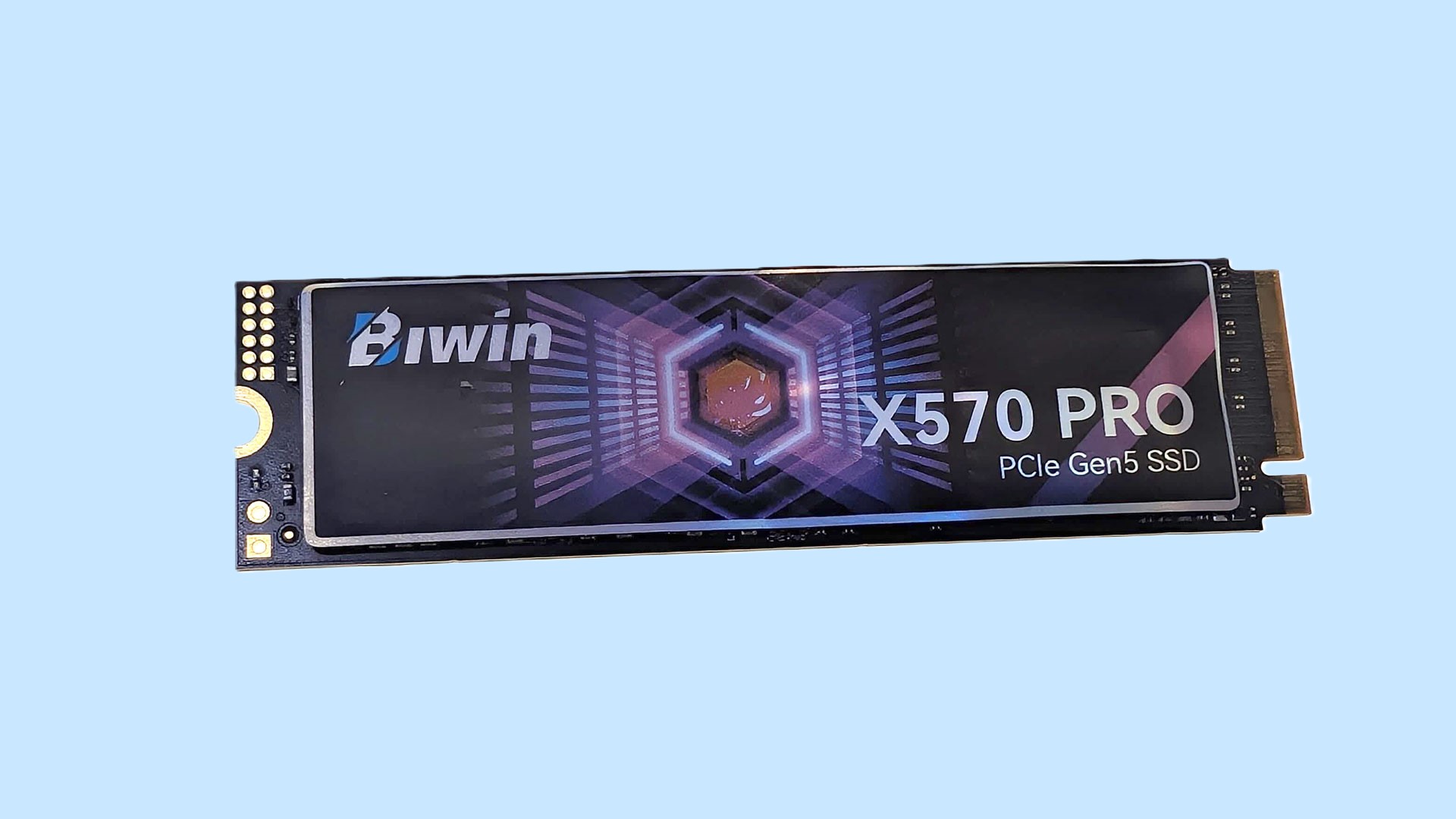
Last year, we previewed Silicon Motion's SM2508 controller with a 1TB SSD. It looks ready to deliver compelling performance and give Phison a run for the money, but we've been waiting to see retail availability for four months now. The wait may finally be coming to an end, and when we visited with Biwin at CES 2025, it showed off it's upcoming Black Opal X570 Pro drives, with capacities of 1TB, 2TB, and 4TB — all using the SM2508.
Performance and efficiency look strong, so all that remains to be seen is retail pricing. Biwin told us it's targeting around $150 for the 1TB drive and $250 for the 2TB model. The 1TB drive is already selling in China and should arrive in the U.S. and elsewhere within the next couple of months.
As far as the hardware, besides the SM2508 controller, we're told Biwin is using Micron's 232-layer TLC NAND. That's the same flash that's been paired with the Phison E26 drives, so it will be interesting to see how final performance matches up.
Biwin obviously isn't the only company planning on releasing an SM2508 drive in the near future. These will have to compete against both the E26 and the upcoming Phison E28, not to mention the more value oriented Phison E31T models.
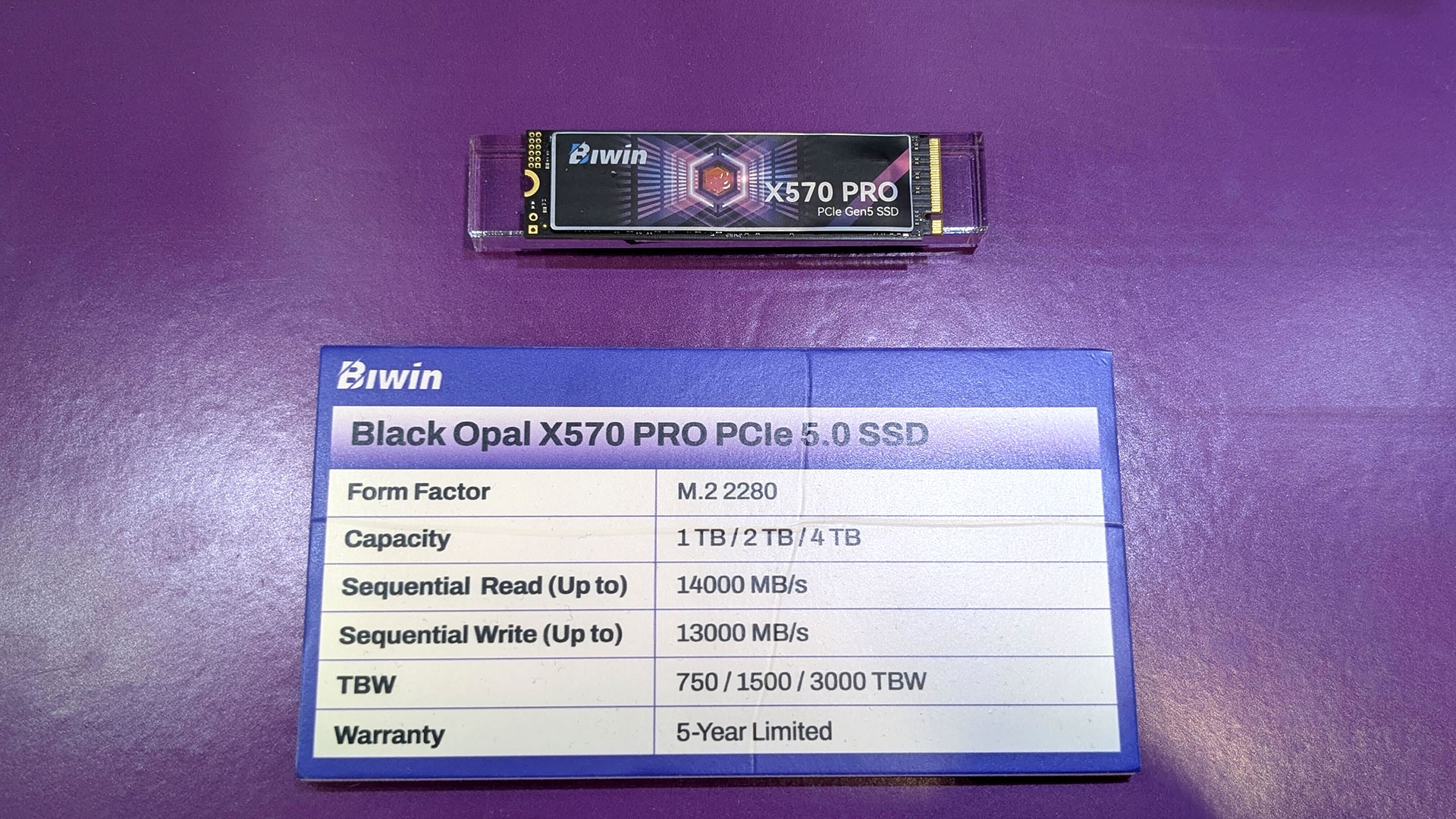
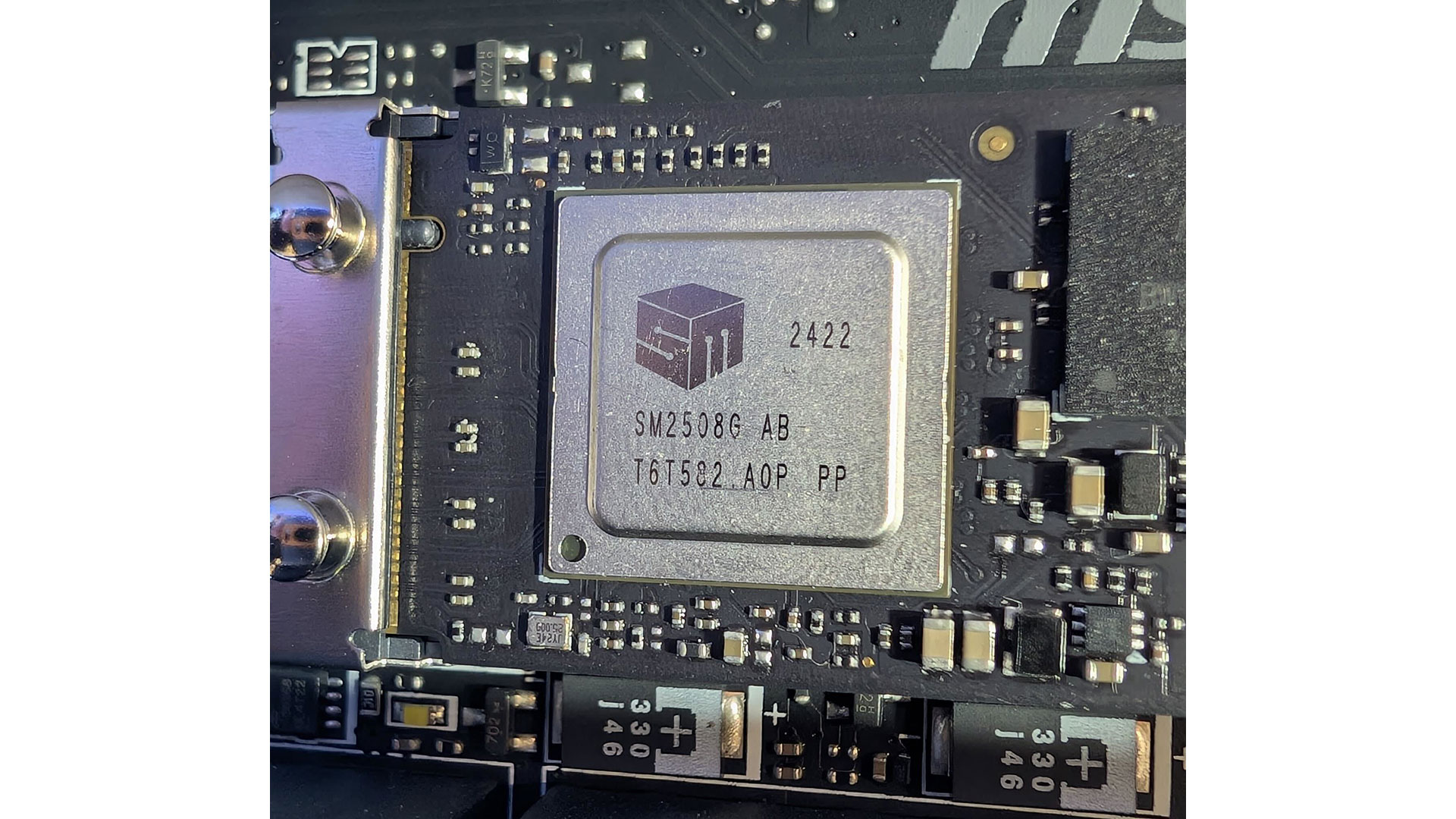
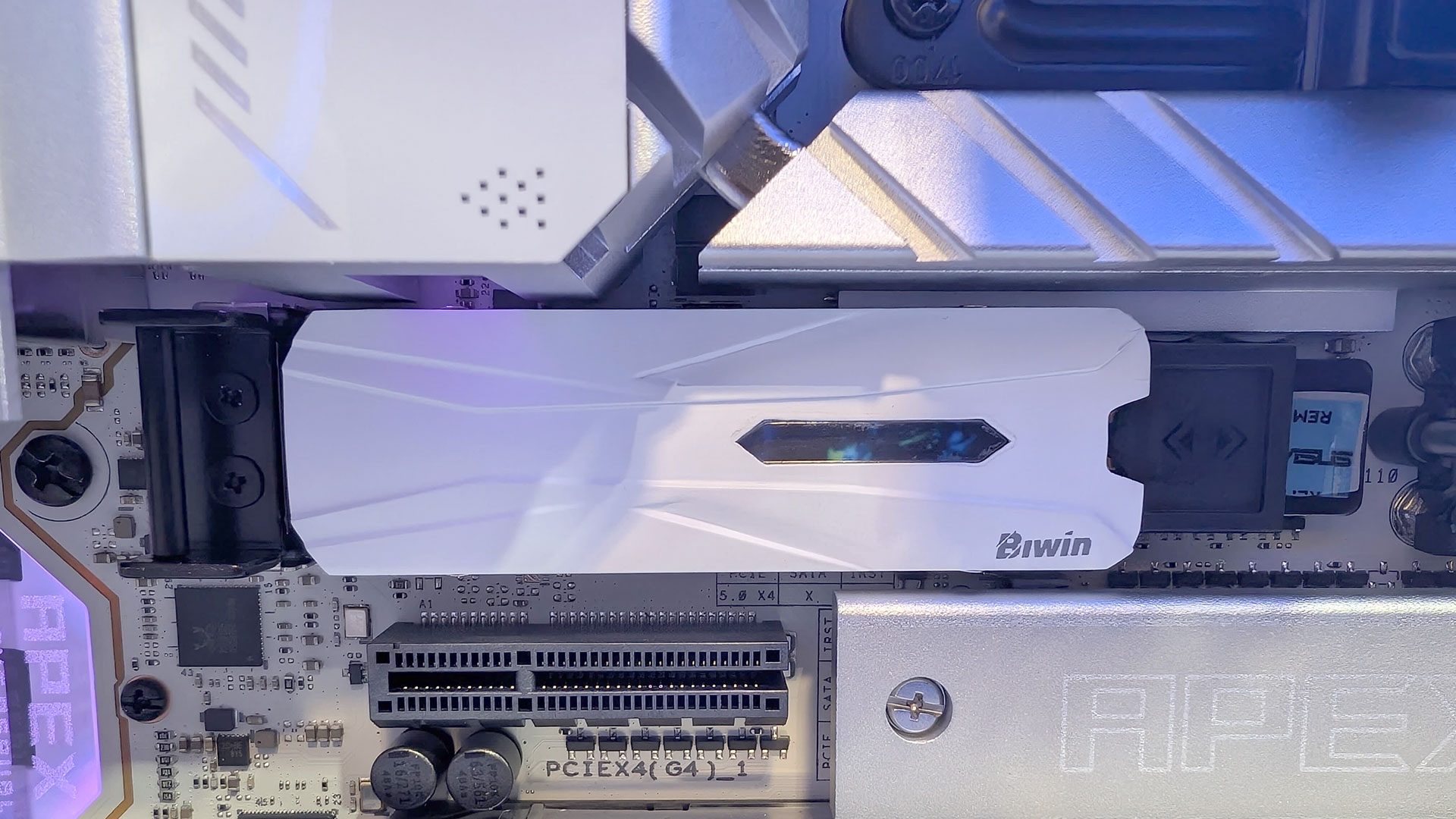
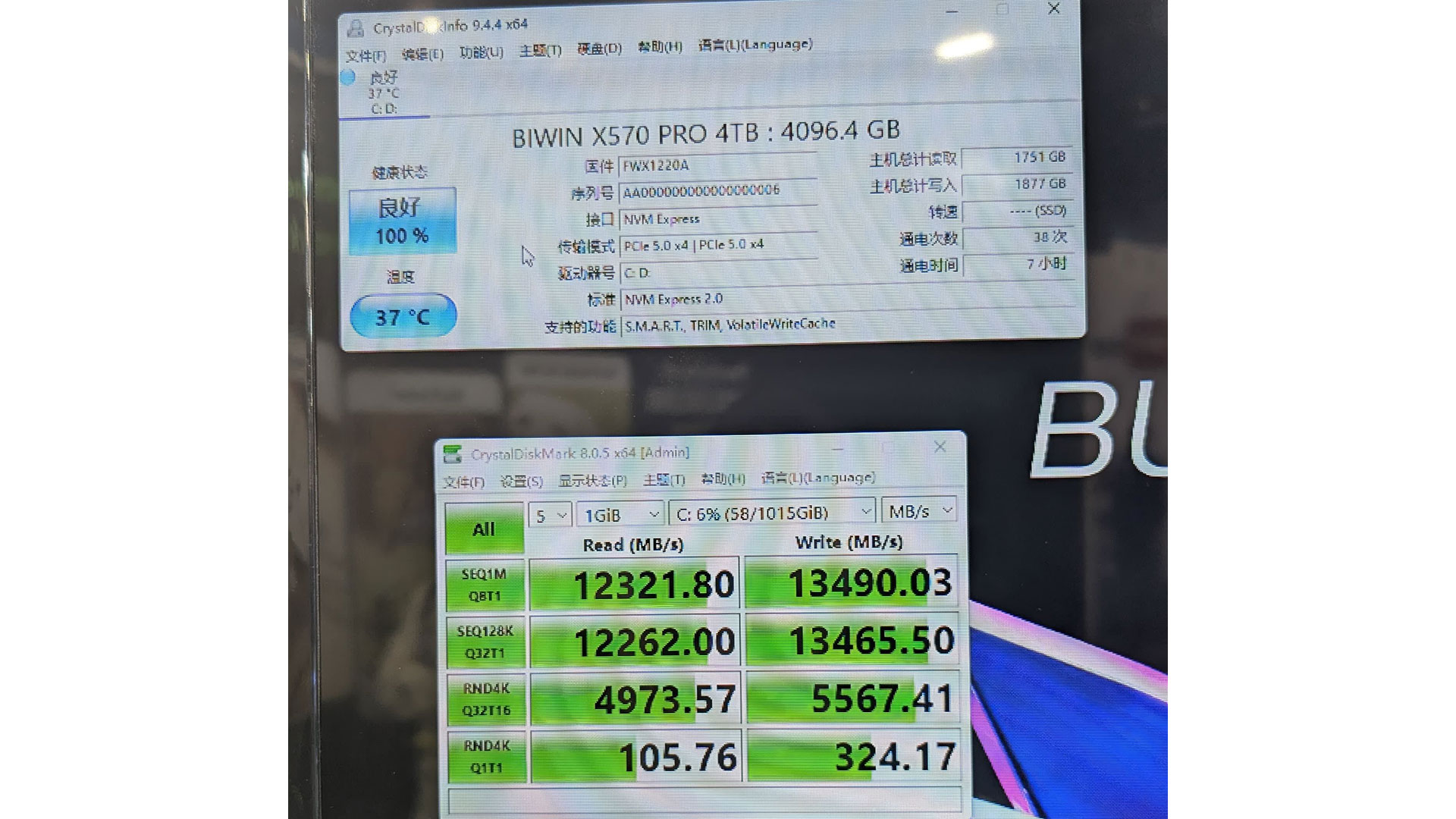
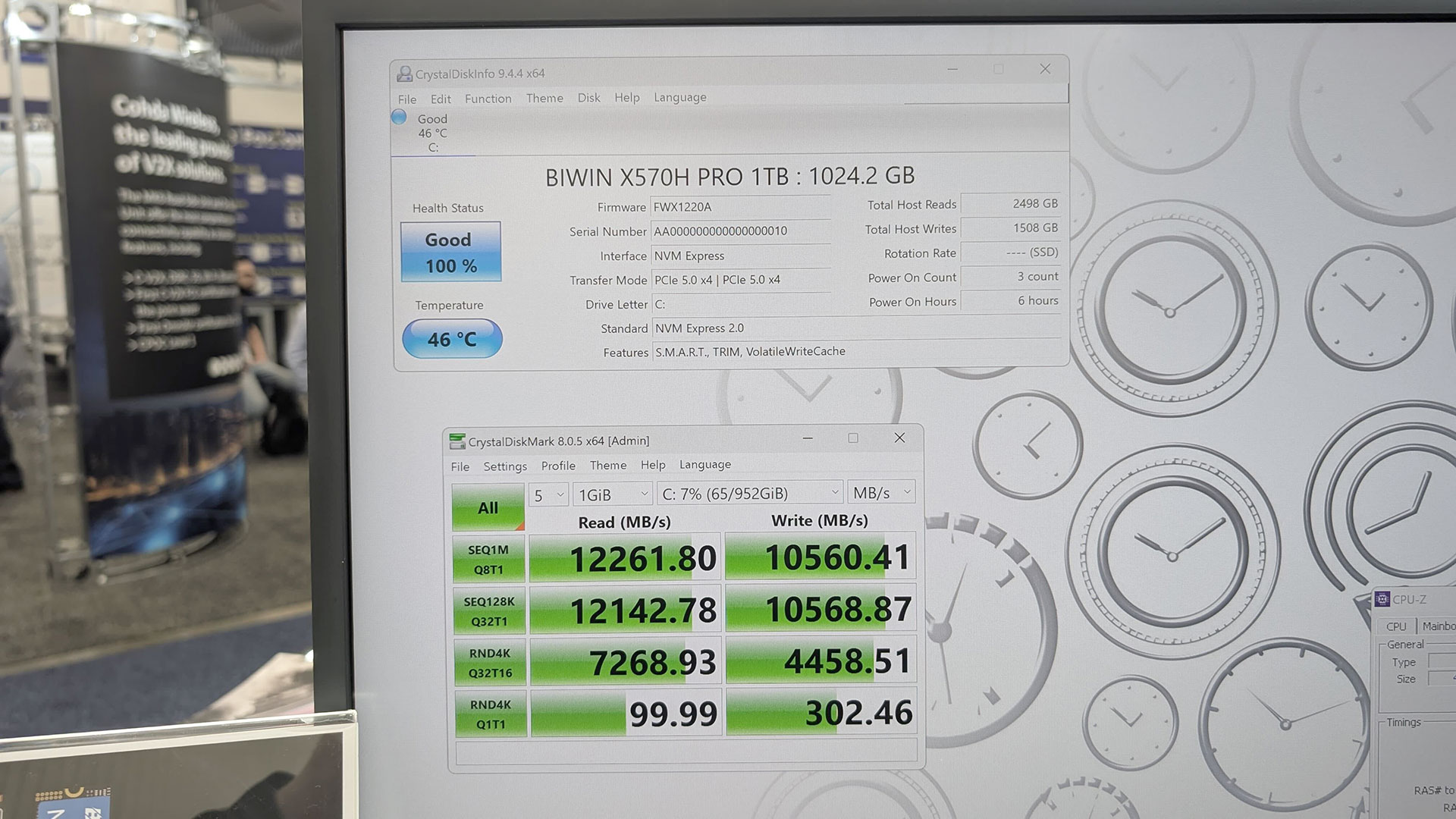
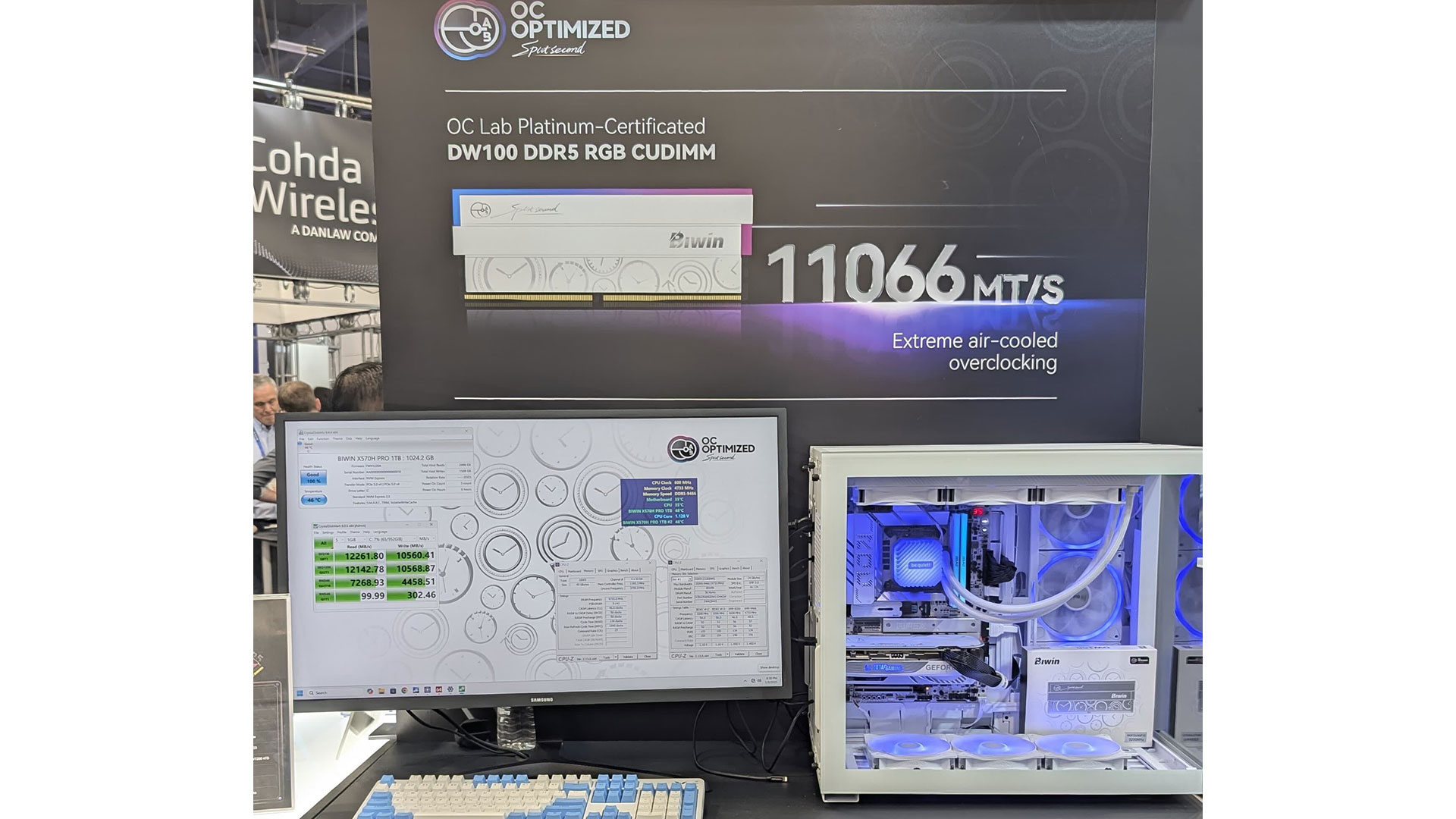
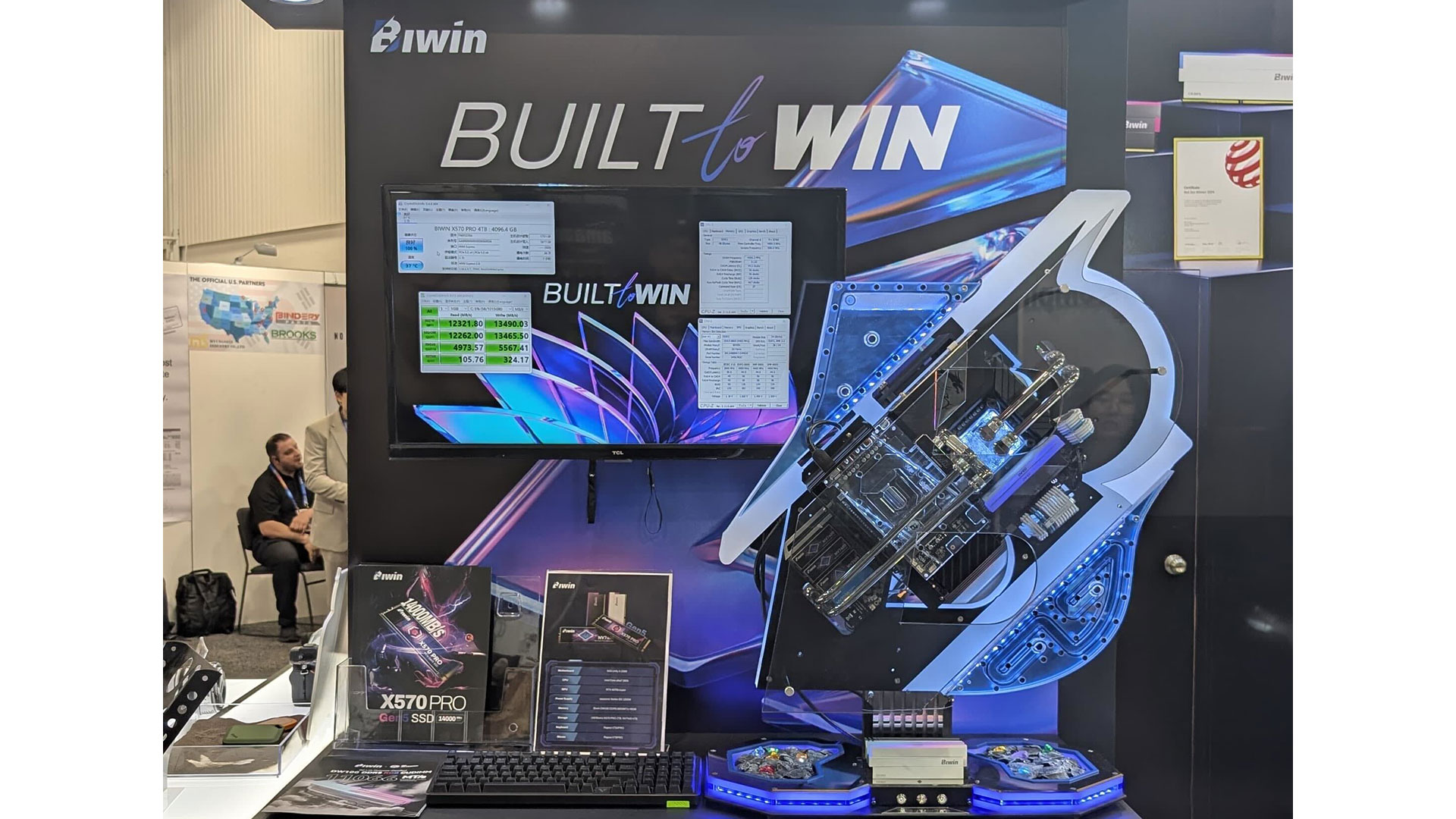
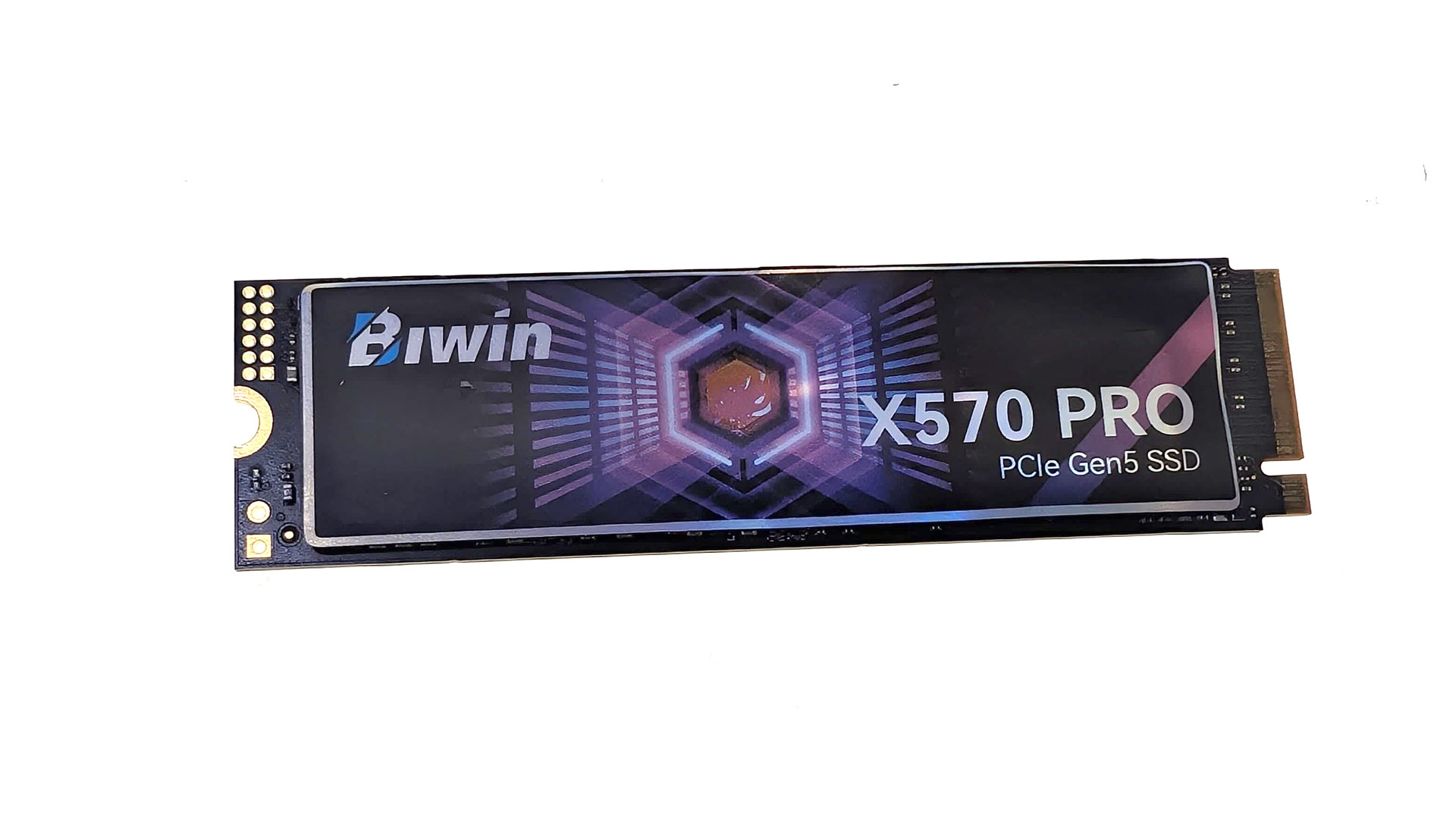
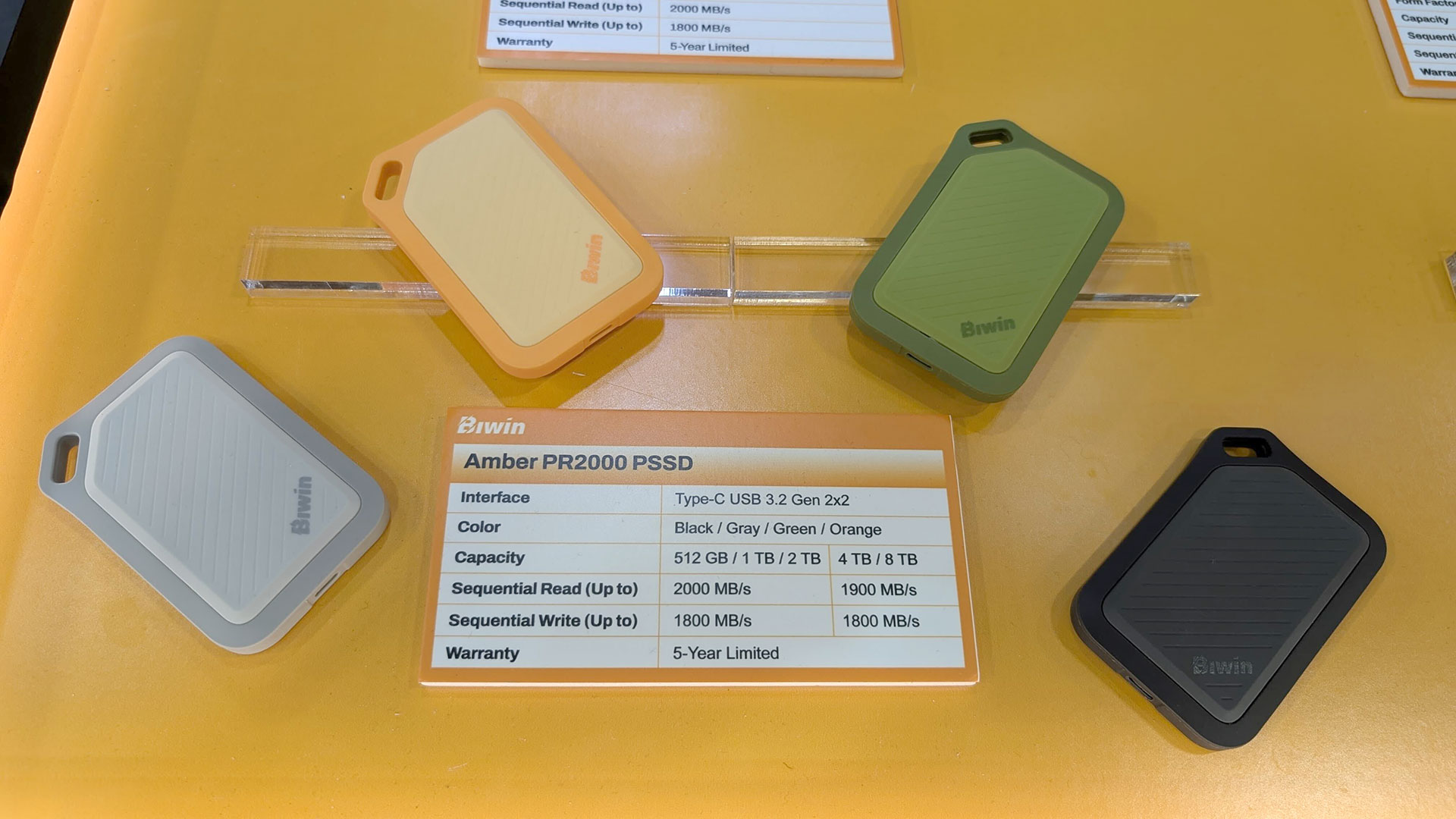
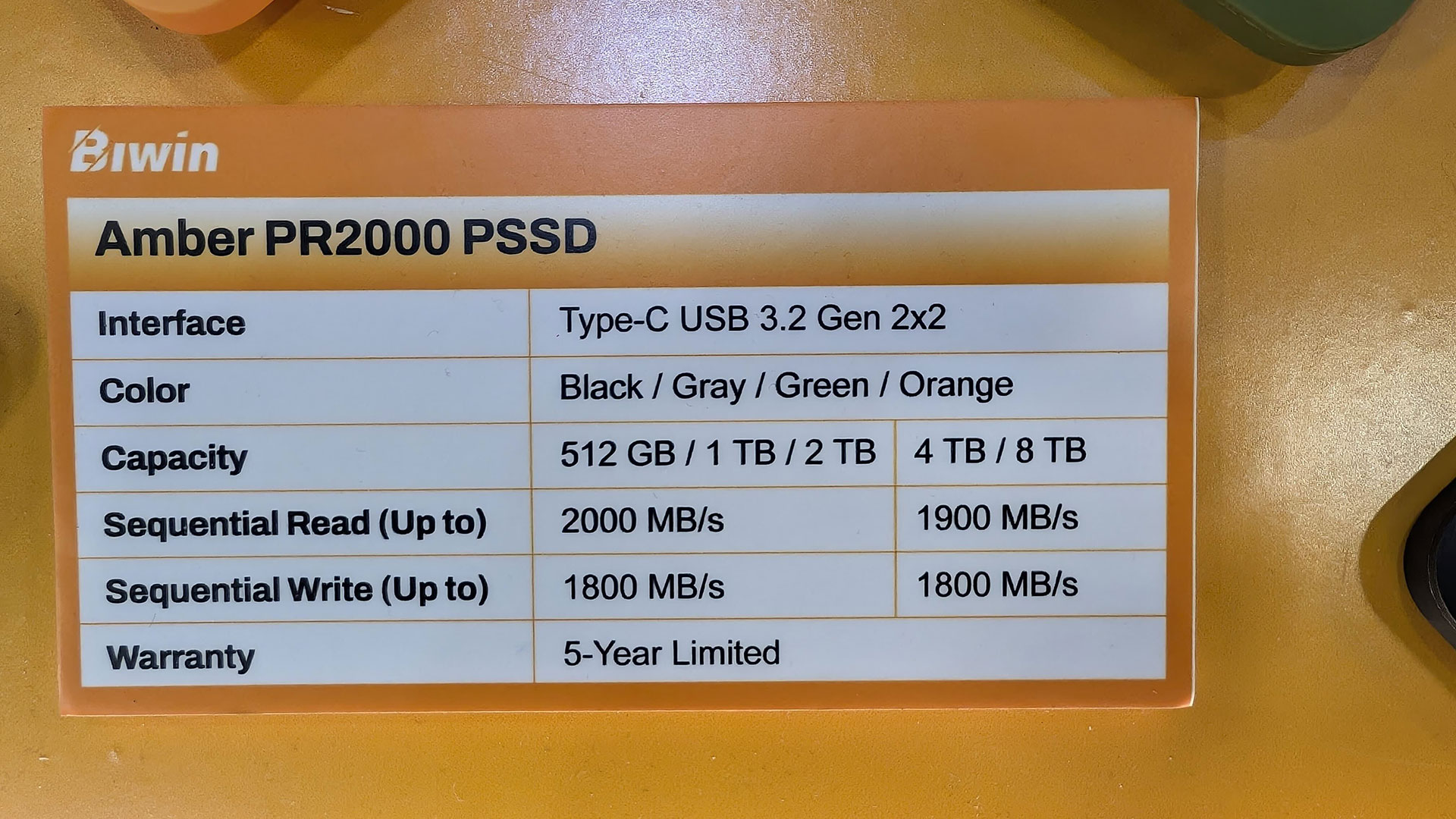
We've got a few other photos of CrystalDiskMark and other products from Biwin in the gallery above. Besides the X570 Pro, there's also a heatsink version, with a white or black heatsink, that will be available.
Biwin also had some CUDIMMs on display, rated for performance up to 11066 MT/s. Obviously, these are for overclocking purposes, and we'll be interested in seeing how far the various memory manufacturers will push RAM speeds on CUDIMMs in the coming years.
Besides M.2 SSDs and memory, Biwin also showed some external SSDs, with its PR2000 line offering read/write speeds up to 2000/1800 MB/s on 512GB, 1TB, and 2TB models; there are also 4TB and 8TB models with speeds of 1900/1800 MB/s. These are USB 3.2 Gen 2x2 drives rather than USB 4 or Thunderbolt, but considering there's a much larger install base for USB 3.2 20Gbps laptops and desktops, that's still the primary focus for a lot of external SSDs.







